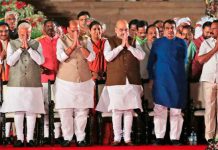All About 7th Central Pay Commission
We are here with the Important points about 7th Central Pay Commission were given here, which will be more helpful for the candidates those who are preparing for the upcoming competitive exams.
- Head of 7th Central Pay Commission – Justice AK Mathur
- 7th Central Pay Commission (CPC) submitted its report to Union Finance Ministry in New Delhi
- Objective of CPC – to revise remuneration of employees and pensioners of central government including Defence and Railways
- CPC is constituted by the Union Government after almost every 10 years in order to revise the pay scales of employees
- 6th CPC was headed by B.N.Srikrishna and was approved in July 2006
- The recommended pay revision will come into effect from 1st January 2016
- Finance Ministry to set up a committee headed by Expenditure Secretary to go through the report for its implementation
- About 47 lakh serving employee and 52 lakh pensioners of the Central Government will be impacted by this pay revision
- Implementation of 7th CPC will impact fiscal deficit by 0.65%
- It will cost the public Tax department over Rs. 1 lakh annually.
Recommendations of the 7th CPC to the Union Government
- 23.55% hike in pay and allowances of government employees
- The pay to increase by 16%
- Allowances to increase by 63%
- Pension to increase by 24%
- To set minimum basic pay as Rs. 18,000 and maximum as Rs. 2.5 lakh per month
- Abolition of grade pay and pay band structure
- To set rate of annual increment for employees at 3%
- Abolition of 52 allowances
- Introduction of a Health Insurance Scheme
- One Rank One Pension (OROP) scheme for central government staffers, para military as well as armed forces personnel
- Increase in military service pay and revised pension formula for civil employees including Central Armed Police Forces (CAPF) and Defense Personnel retiring before 1 January 2016.


























